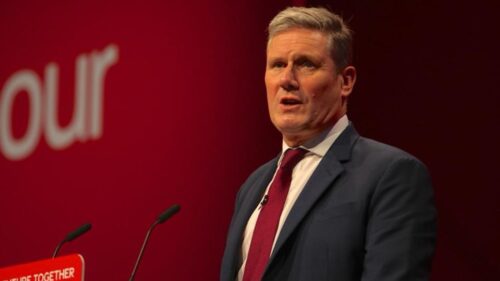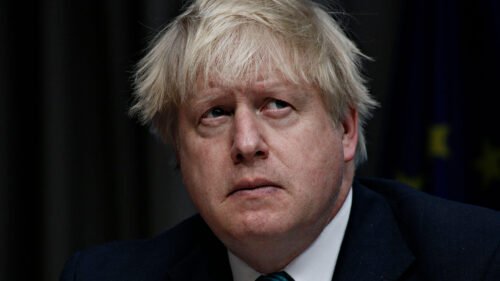Nigel Farage, the leader of the right-wing populist political party Reform UK, has capitalized on Britain’s growing discontent with its traditional political class as the country faces one of its most severe crises. As Household incomes decline, inequality increases and the middle class shrinks, public frustration has intensified. Many Britons believe their democracy no longer represents them, and the failure of representative democracy has made it clear that leaders must engage more directly with the people. However, the Labour Party under Keir Starmer has failed to address this demand. Even the political strategists who once controlled the government’s messaging have lost their influence, creating an opening that Farage has been quick to exploit.
Nigel Farage and Reform UK
Amid this political turmoil, Farage has positioned himself as a challenger to Britain’s established order. Although he has not proposed a detailed blueprint for national recovery, he has consistently attacked the political elite, accusing them of serving their own interests at the expense of ordinary Britons. He has fiercely criticized Labour’s environmental policies, arguing that the government’s push for a “green transition” places an unfair economic burden on working-class households. His message has resonated with a growing number of voters.
Farage’s charisma and ability to connect with the public have allowed him to remain influential without aligning himself with far-right extremism. Under his leadership, Reform UK has quickly become a significant player in British politics, drawing in thousands of new members. According to the party’s official website, over 46,000 people joined in the last two weeks of December 2024. This rapid expansion has propelled Reform UK past the Conservatives in membership numbers, leaving Labour as the only party with a larger base. Meanwhile, Labour’s dominance has faced a historic decline. In January 2024, the party led the polls with 44% support, but by December, that number had plummeted to 26.6% — its lowest level since 1945. The Conservative Party, struggling with internal divisions and voter dissatisfaction, has failed to regain ground, giving Reform UK a unique opportunity to position itself as the leading opposition force.
Leadership and popularity
Farage’s confrontational style has drawn comparisons to US President Donald Trump. Despite high levels of public criticism, Farage has maintained strong support. A recent Ipsos poll ranked him as the most popular party leader in Britain, with 31% of respondents expressing a favorable opinion — higher than the 21% approval rating for Stamer and other prominent politicians.
Many Britons see Farage as the only leader willing to address their concerns. He has condemned immigration policies and accused the government of mismanaging housing costs, rent prices and public services. By challenging the mainstream political establishment, he has gained support from voters who feel ignored by both parties. His willingness to take on controversial issues has reinforced his reputation as a politician unafraid of uncomfortable debates.
Farage’s political influence expanded further in 2023 when he became the central figure in Britain’s “debanking” scandal. Coutts, a major UK bank, closed his account, sparking widespread public outrage. Farage claimed that the bank’s decision was politically motivated, and the controversy fueled concerns about free speech and political bias within financial institutions.
Success in British politics and the media
In 2024, Farage achieved what many had considered impossible: he won a seat in Parliament. The victory cemented his role in Britain’s political realignment. With the Labour Party in decline and the Conservative Party unable to recover, Reform UK has positioned itself as a legitimate alternative. What’s more, Farage’s populist rhetoric appeals to more than just right-wing voters; it attracts disillusioned members of Labour’s traditional base. If this trend continues, Stamer could face an internal revolt within the Labour Party, further destabilizing the party.
Despite its rapid rise, Reform UK faces serious challenges. The party lacks an experienced professional staff and a strong network of local activists. Its policy proposals remain underdeveloped, and many critics dismiss it as a protest vote rather than a viable governing party. Additionally, the division of right-wing voters between Reform UK and the Conservatives could also benefit the Labour Party by preventing either opposition party from gaining enough support to win elections outright.
Still, Farage remains an influential figure in both British and international politics. His connections with conservative movements abroad, his ties to American neoconservatives and his friendships with figures like Donald Trump and tech billionaire Elon Musk have expanded his influence. If speculation of financial backing from Musk proves true, Reform UK could gain significant resources and political momentum.
Even without external funding, Reform UK continues to gain media recognition. British news outlets that once dismissed Farage have softened their criticism, acknowledging his growing impact. For example, the British Broadcasting Corporation apologized in 2023 for its inaccurate report about why Farage’s account at Coutts Bank was closed. It also issued an official apology in 2024 for breaking its own impartiality rules when it accused him of using “inflammatory language”. This shift in media perception signals a growing recognition of Farage’s influence and the potential longevity of his political movement.
In global politics, few protest movements have successfully transitioned into lasting power. Whether Reform UK follows that path or fades remains uncertain. One reality is already clear: Farage’s rise reflects deep divisions within British society. If political leaders continue to ignore widespread dissatisfaction, Reform UK could seize even more power. For now, the party is biding its time, waiting for the right moment to strike.
[Kaitlyn Diana edited this piece]
The views expressed in this article are the author’s own and do not necessarily reflect Fair Observer’s editorial policy.
Support Fair Observer
We rely on your support for our independence, diversity and quality.
For more than 10 years, Fair Observer has been free, fair and independent. No billionaire owns us, no advertisers control us. We are a reader-supported nonprofit. Unlike many other publications, we keep our content free for readers regardless of where they live or whether they can afford to pay. We have no paywalls and no ads.
In the post-truth era of fake news, echo chambers and filter bubbles, we publish a plurality of perspectives from around the world. Anyone can publish with us, but everyone goes through a rigorous editorial process. So, you get fact-checked, well-reasoned content instead of noise.
We publish 3,000+ voices from 90+ countries. We also conduct education and training programs
on subjects ranging from digital media and journalism to writing and critical thinking. This
doesn’t come cheap. Servers, editors, trainers and web developers cost
money.
Please consider supporting us on a regular basis as a recurring donor or a
sustaining member.
Will you support FO’s journalism?
We rely on your support for our independence, diversity and quality.











Comment